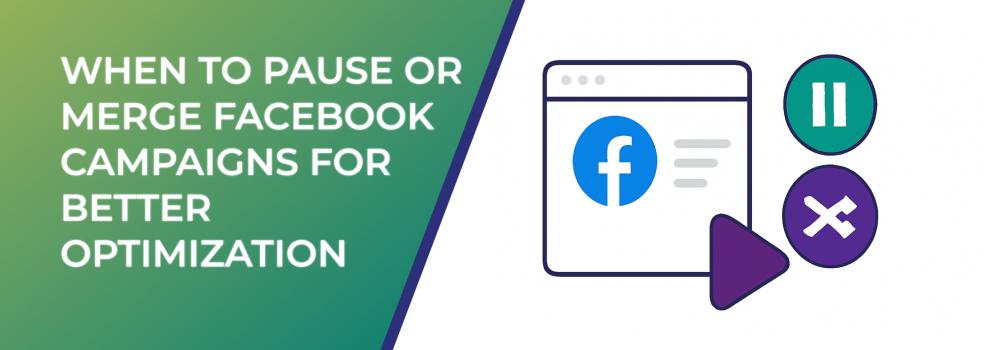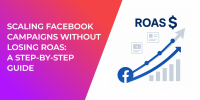Running Facebook campaigns requires continuous evaluation and optimization. One key aspect of effective Facebook advertising is knowing when to pause or merge campaigns to maximize results. Pausing underperforming campaigns or merging overlapping campaigns can lead to better budget allocation, increased reach, and improved conversion rates. Let's take a closer look at how and when to make these critical adjustments for better optimization.
1. When to Pause a Facebook Campaign
Pausing a Facebook campaign may seem drastic, but in many cases, it's the right move. Below are situations where pausing a campaign can result in better performance:
Low Conversion Rate
If your campaign is generating a lot of traffic but few conversions, it might be time to pause. A low conversion rate often indicates that your targeting, creative, or landing page experience needs adjustment. According to a study by Facebook, campaigns with conversion rates below 1% should be re-evaluated or paused to improve efficiency .
High Cost Per Conversion (CPC)
Facebook’s Cost Per Conversion (CPC) is an essential metric to track. If the CPC is significantly higher than the average for your industry, you may need to pause the campaign until you refine the targeting and creatives. For instance, the average CPC for Facebook ads across industries can vary significantly, but a figure above $10 per conversion generally signals inefficiency .
Budget Burnout
Campaigns that are not getting sufficient results despite spending a large budget may be candidates for pausing. A good rule of thumb is that if a campaign has burned through more than 50% of its budget without achieving any desired metrics (like click-through rate or conversions), it’s better to pause and reassess.
2. When to Merge Facebook Campaigns
Merging campaigns may sound counterintuitive at first, but it’s often an excellent strategy to reduce overlap, consolidate targeting, and increase reach. Here are some scenarios where merging campaigns works wonders:
Overlapping Audiences
If you have multiple campaigns targeting the same or similar audiences, merging them can help consolidate your efforts and avoid competing within the Facebook ad auction. Combining these campaigns ensures that the budget is used more efficiently without competing against itself.
Simplifying Ad Sets
If you are running similar ads across different ad sets, you may find that the performance can be enhanced by merging them into a single campaign. For instance, a campaign focused on Facebook ad optimization or campaign budget optimization might perform better when simplified into one overarching strategy rather than splitting it across multiple ad sets.
Campaign Objective Overlap
If you are running multiple campaigns targeting the same objective, it might make sense to merge them. This is especially effective for campaigns designed around the same end goal, such as lead generation or traffic generation.
3. Optimize Campaign Budgets with Merged Campaigns
When merging campaigns, make sure to set a unified campaign budget optimization (CBO) strategy. This allows Facebook to automatically distribute the budget across the best-performing ad sets. By doing so, you give the algorithm more flexibility to allocate resources where they will be most effective, leading to better optimization of your Facebook ad campaigns.
Example Strategy:
-
Campaign 1: Targeting interest-based audience with budget set to $50/day.
-
Campaign 2: Targeting lookalike audience with budget set to $50/day.
-
Merged Campaign: Combining both audiences under one budget, enabling Facebook to optimize where the budget performs best.
4. Utilize Facebook’s Automatic Adjustments
Facebook’s platform has several automatic optimization features, such as Automatic Bidding and Dynamic Ads. These tools can be useful when merging campaigns as they will automatically optimize bids and ad delivery to ensure maximum reach and conversions. However, it's still critical to monitor performance closely to ensure these adjustments align with your goals.
Conclusion:
Knowing when to pause or merge campaigns is a key part of Facebook campaign optimization. By monitoring performance metrics like click-through rate (CTR), CPC, and conversion rates, you can make data-driven decisions to optimize your campaigns for better results.
For additional insights on Facebook ad strategies, check out these articles on LeadEnforce:
By mastering these techniques, you'll be better positioned to achieve your marketing goals and enhance the effectiveness of your campaigns.

